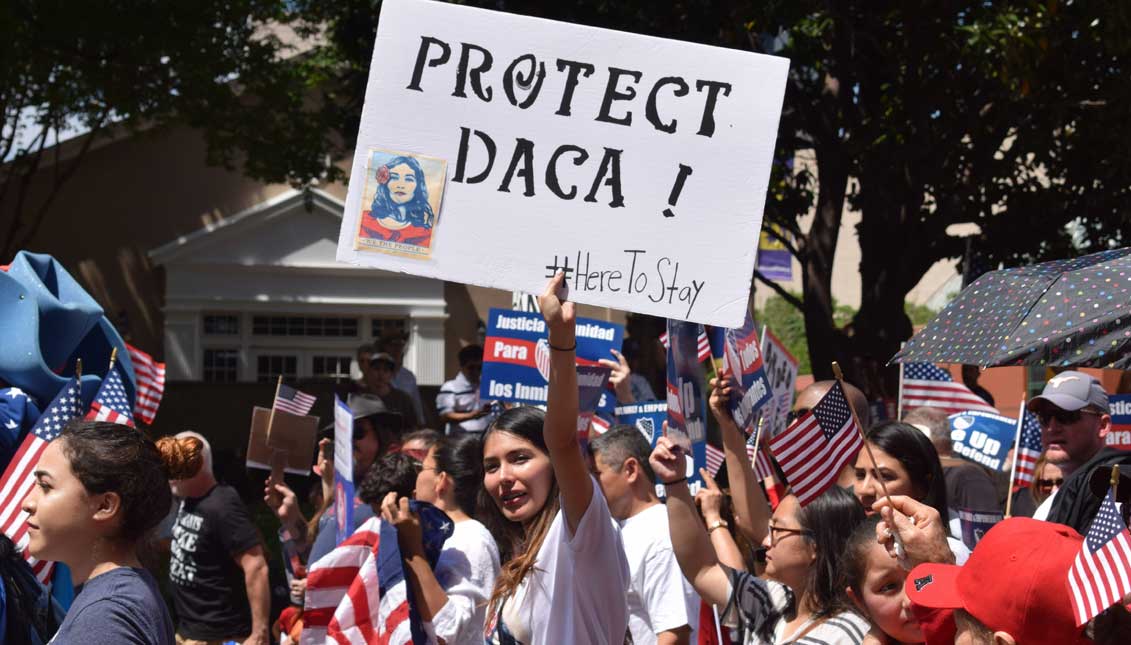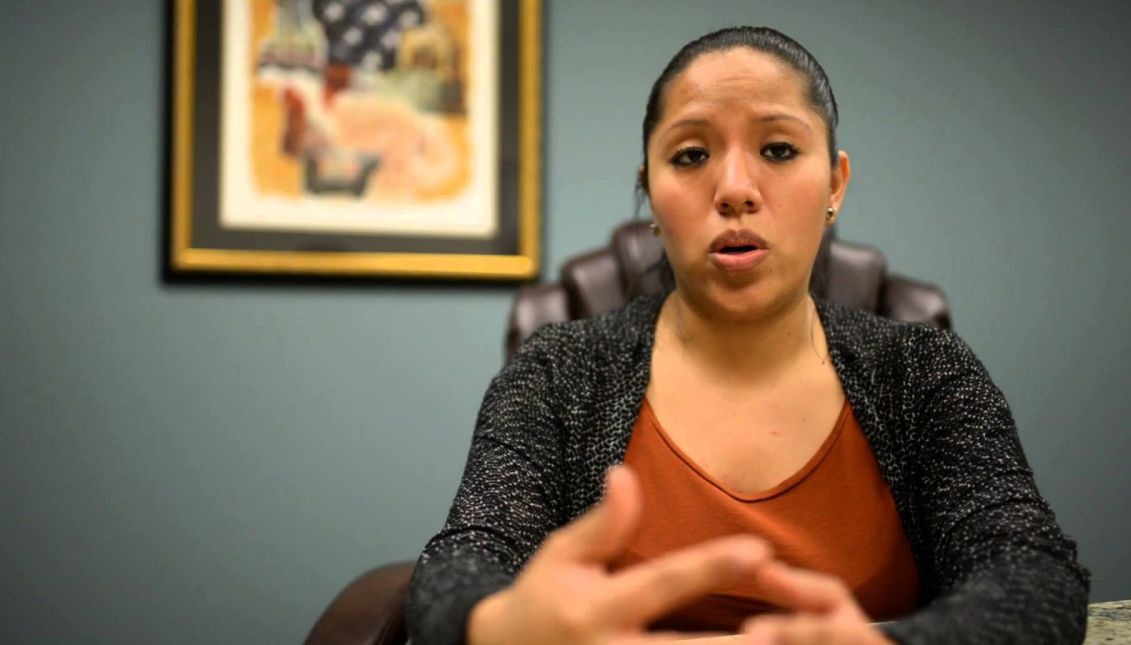
The future of the 'Dreamers' is at stake
About 750,000 undocumented immigrants live in the United States under the DACA program. 23,000 of them live in Pennsylvania. The increase of arrests and the…
Five years ago - in June 2012 - the government under President Barack Obama issued an executive order to launch a new immigration program that would change the fate of thousands of undocumented youth across the country. This program was called the Deferred Action for Childhood Arrivals (DACA), a plan that grants the right to live and work to all those immigrants who have entered the country illegally, under 16 years of age, and with the condition of not having a criminal record.
The program also requires applicants to be enrolled in or have completed high school as well as residing in the country prior to June 2007.
Since then, the program has made it possible to regularize the status of more than 750,000 undocumented immigrants across the country – the so-called dreamers - 75% of Mexican origin, according to a report by the Pew Research Center. The permit is temporary and is subject to a renewal process every two years. About 512,000 immigrants hope to be able to renew their DACA permit by the end of the fiscal year, on Sept. 30 according to the Pew study.
Until now, the renewal of the DACA - although a rather cumbersome bureaucratic process - was easy to achieve. For the beneficiaries of this program, renewing their legal status is fundamental to continue their university studies or have access to a good job, avoiding living in the dark or under fear of being deported like the others undocumented immigrants. But now, with the arrival of Donald Trump to the White House, everything can change.
As promised during his election campaign, the Republican president's administration has put in place a hard-hitting policy against undocumented immigrants - especially aware of Latinos - whom it accuses of being responsible for increased crime and insecurity in the country.

In the past six months, immigration and customs arrests and raids on immigrant communities have increased. The Trump administration has also announced the hiring of more than 15,000 new immigration and customs agents, as well as the approval of a new law to punish with public funds cuts to the so-called "sanctuary cities" if they do not collaborate in data exchange with Immigration agents to identify undocumented immigrants.
Within this context of fear, DACA seem to have been spared so far from being a deportation target of the Trump administration. Since coming to power in January, President Trump has assured on several occasions that his government will respect the rights of dreamers, many of whom have grown up in the US and have no contact with their country of origin, which they abandoned when they were kids.
At a press conference in February, Trump said his government "was going to show a big heart" with all those "incredible guys", in open contradiction with his electoral promise to end the program.
Last May, Homeland Security Secretary John Kelly insisted once again that the program would stay the way it is, despite criticism from the Republican Party's more radical wing that was pushing for its removal. Two weeks ago, a group of 10 "red" states, led by Texas Attorney General, sent a letter to the White House demanding the immediate elimination of the program, claiming, "DACA unilaterally confers eligibility to obtain a work permit and the legal presence in the territory without the statutory authorization of the Congress".
So far, the Trump administration has not yet released a statement, but the fact that the DACA program was imposed under President Obama's "executive order," entitles the current government to revoke it at any time, according to the association of immigrants’ rights HIAS Pennsylvania.
So far, the Trump administration has limited itself to putting an end to another Obama-proposed decree-law; the DAPA (Deferred Action for Parents Arrivals) intended to extend DACA benefits to immigrants with children residing in the US or with American nationality. The DAPA memorandum was suspended because the Supreme Court had not approved it in 2014.
On the one hand, the government promises it will continue to process applications for DACA procurement and renewal, but recent cases of detention and threats of deportation of dreamers across the country have sown fear in this young community.
The most controversial case has been that of Jessica Colotl, a 28-year-old Mexican immigrant living in Georgia who was arrested in early May by ICE agents and threatened with deportation when she was withdrawn from the DACA program.

Claiming a violation of traffic regulations by Colotl in 2010, Immigration and Customs Enforcement (ICE) agents on Monday reported withdrawing the DACA's privileges for failing to meet one of the basic requirements: not to commit any crime or infraction.
After a month of fighting with lawyers, a student at Kennesaw State University - and an immigrant - has gotten a judge to overturn ICE's decision. According to the Atlanta Journal Constitution, a Cobby County judge first dismissed Colotl's traffic violation as an argument to expel her from the program, claiming that the immigrant had already been "pardoned" for that offense under Obama's mandate. However, the CEC forces clung to another accusation - felony - claiming that Colotl had admitted her fault to ICE agents, forcing the girl's lawyers to take her case to a federal judge.
"It is simply surprising to see that under the Obama administration I was able to easily renew my application to DACA. Instead, under this administration, my DACA status has been terminated, despite having said ... that they were not behind the dreamers," Colotl said during the process.
Finally, after almost six months of litigations and lawyers, Colotl managed to get rid of the deportation order. On Monday, a federal judge in Atlanta ruled that the Mexican immigrant was readmitted to the DACA program and halted her deportation proceedings. Since the program's launch in 2012, more than 1,500 Dreamers have seen their privileged legal status revoked by immigration and Customs authorities, according to The New York Times.
However, cases like his have shown that the Trump administration is looking with a magnifying glass at the basic requirement for the DACA renewal: not to have committed any crime, and minor infractions like a traffic ticket can now sow a panic situation between 'dreamers'.
Also, in the state of Georgia, a beneficiary of the federal DACA program was arrested earlier this year and is at risk of deportation even though the judge dismissed the charges for which he was detained.
RELATED CONTENT
Rubén González Guzmán, 22, of Reynosa, Tamaulipas, Mexico, was arrested after being accused of involvement in the theft of a vehicle, although the investigators later found that he was not involved in the crime and the indictment was removed before being transferred to the detention center, according to EFE.
"He's a guy who works in construction and on weekends he helps the neighbors by mowing the lawn. Rubén's dream was to enter the Marines and continue to help his community, "said to Efe Araceli Guzman, the young man's mother.
With more than 216,000 DACA beneficiaries, California is the state with the highest number of dreamers, followed by Texas (120,642) and Illinois (41,256).
In California, the majority are children of Latino immigrants, especially Mexicans, who have managed to regularize their situation and access to university studies.

Last March, the Monterey Herald uncovered the case of Juan Manuel Martinez, a 19-year-old Mexican dreamer living in Salinas, who was arrested and jailed by Immigration and Customs Enforcement (ICE) agents after being unjustly accused of belonging to a "criminal band”.
According to the Monterey Herald, Juan Manuel Martínez was arrested on March 19 in the parking lot of the Monterey County jail, where he had gone to escort a friend who wanted to visit an inmate. The police accused the young man of trying to put drugs in jail. Even though the indictment was found to be false on the same day, ICE agents held a warrant for arrest, accusing him of belonging to a juvenile gang and, therefore, with the possibility of committing a crime, which allowed them to revoke his DACA membership.
Martinez was held in a Northern California detention center for almost two months, until lawyers succeeded in proving that the allegations were not true. Martinez - who worked as a seasonal worker in a field of lettuce and spinach – was released by an immigration judge on May 3. The boy's arrest, however, has left psychological sequels: "barely talks, can not sleep, almost does not eat," his relatives stated during a press conference after his release.
There is no other choice but to trust. National Security Secretary John F. Kelly said in June that DACA would remain in effect and that the government "will continue to maintain 1 million legal immigrants per year." However, "we are not going to create a favorable context for illegal cross-border movements," said the head of immigration policy.
According to figures released last June by the Department of Citizenship and Immigration, approximately 17,000 immigrants have applied for the first time to rely on the DACA program since January this year.
Immigration Department statistics also reveal that an additional 107,000 immigrants who already have status, applied for the renewal of their DACA permit.
The requirements for obtaining DACA permits remain the same: to have entered the country under 16 years prior to 2007, to be a high school student, and to have committed no crime or criminal offense.
Check out the story of María Sotomayor, a dreamer based in Philadelphia that made her dream come true.










LEAVE A COMMENT: